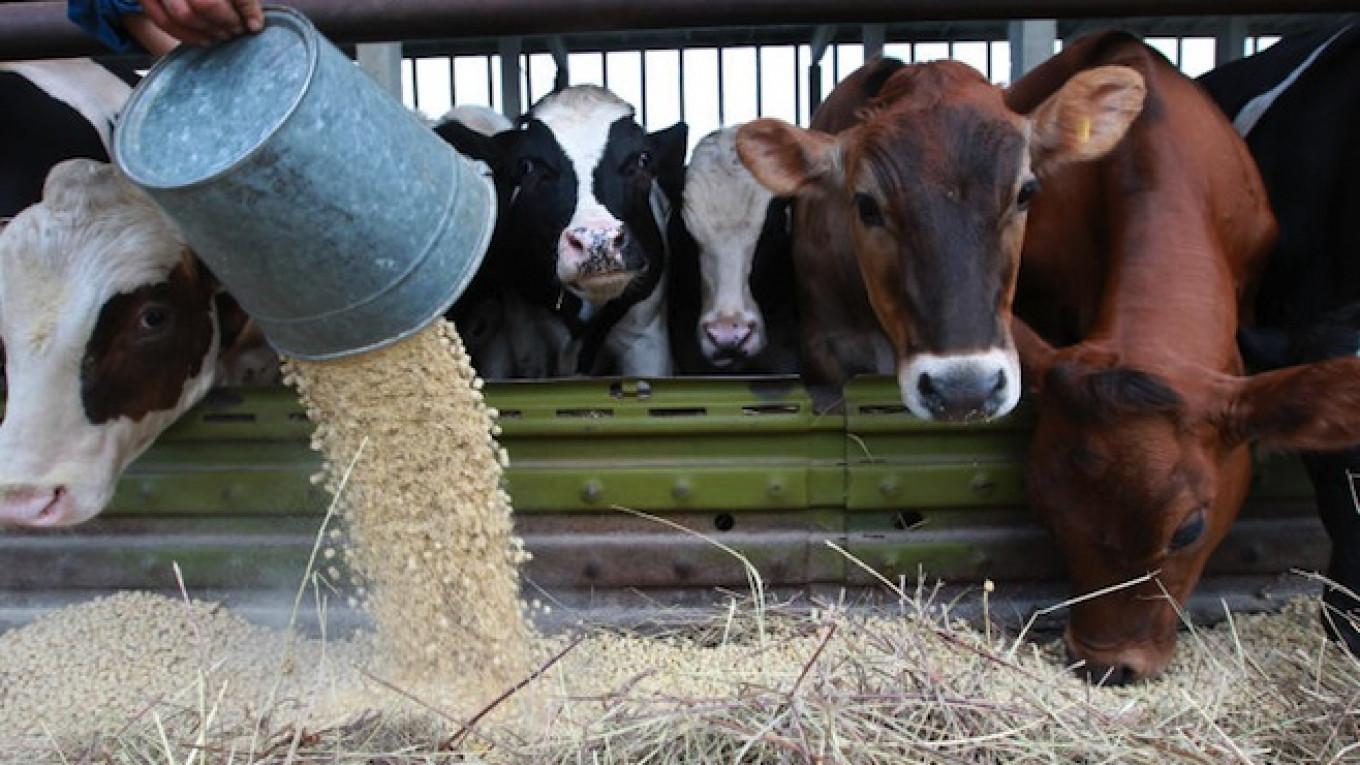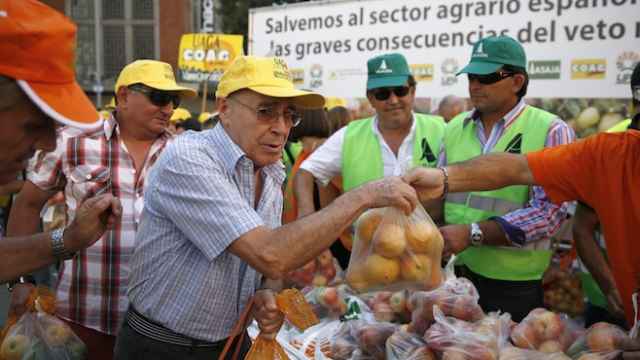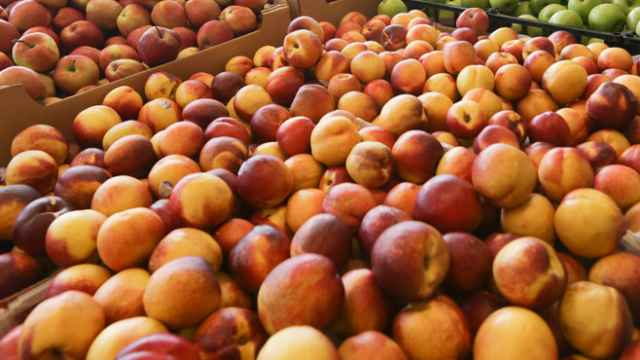The European Commission announced a 500 million euro ($557 million) package of measures on Monday to provide relief for farmers stung by slumping prices triggered partly by the loss of exports to Russia due to EU sanctions against the country.
The crisis has triggered a wave of protests which culminated on Monday with nearly 5,000 farmers and more than 1,000 tractors arriving in Brussels, where an emergency meeting of the EU's Agriculture Council was being held.
"This package will allow for 500 million euros of EU funds to be used for the benefit of farmers immediately. This is a robust and decisive response," European Commission Vice-President Jyrki Katainen said.
The European Commission said it was seeking to help farmers with cash-flow difficulties, stabilize markets and improve the functioning of the supply chain.
The plan allows member states to advance some payments to farmers and the Commission said it was working closely with the European Investment Bank to design financial instruments where repayments were linked to commodity prices.
Albert Jan Maat, president of farmers group Copa, said Russia was one of the EU's main markets and sanctions imposed as part of the dispute over Ukraine last year had led to the loss of about 5.5 billion euros of agri-food exports.
"This situation is not our fault yet it is our sector that is being hit the most. EU farmers are paying the price for international politics," he said.
Farmers have been facing a worsening cash flow crisis.
"We are now in early September, bills have not been paid for the summer and a lot of milk producers will not be able to see their way through the winter unless cash is put on the table immediately," Mansel Raymond, dairy chairman at Copa said.
The Commission said it would be proposing a new private storage scheme for pork products, an increased budget for promoting products in 2016 and added it was also working hard on bi-lateral trade agreements, most recently with Canada and Vietnam.
Milk prices paid to EU farmers are down 20 percent from last year at 30 euro cents a liter on average.
In the Baltic States, which has been worst hit by Russian sanctions, prices are even lower at around 20 euro cents.
The Commission said it had not yet finalized the national distribution of the support funds but there would be "particular regard to those Member States which have been most affected by market developments."
A Message from The Moscow Times:
Dear readers,
We are facing unprecedented challenges. Russia's Prosecutor General's Office has designated The Moscow Times as an "undesirable" organization, criminalizing our work and putting our staff at risk of prosecution. This follows our earlier unjust labeling as a "foreign agent."
These actions are direct attempts to silence independent journalism in Russia. The authorities claim our work "discredits the decisions of the Russian leadership." We see things differently: we strive to provide accurate, unbiased reporting on Russia.
We, the journalists of The Moscow Times, refuse to be silenced. But to continue our work, we need your help.
Your support, no matter how small, makes a world of difference. If you can, please support us monthly starting from just $2. It's quick to set up, and every contribution makes a significant impact.
By supporting The Moscow Times, you're defending open, independent journalism in the face of repression. Thank you for standing with us.
Remind me later.






